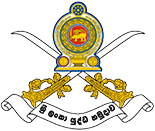 SRI Lanka’s Government was right to finish off the Tamil rebels, despite the risk to and ultimate loss of civilian life. Decisively ending the civil war, which lasted 26 years and killed more than 70,000, will save more lives than were lost in the final assault.
SRI Lanka’s Government was right to finish off the Tamil rebels, despite the risk to and ultimate loss of civilian life. Decisively ending the civil war, which lasted 26 years and killed more than 70,000, will save more lives than were lost in the final assault.
United Nations officials, Western leaders, and human rights groups had called on Sri Lanka to agree to a Ceasefire to allow civilians to flee the shrinking enclave where Government Forces had finally hemmed in the Liberation Tigers of Tamil Eelam. Complying with the request would have been a major strategic mistake.
Those international voices ignored - or maybe didn’t know - the pattern to pauses in the civil war: The Tamil Tigers used every ceasefire to rest, recruit and rearm. Then they took the offensive. That’s how they broke a 2002 ceasefire. Another ended in 1995 when the rebels, dramatically, sunk Government Navy ships.
Beginning this January, Sri Lanka faced the risk that rebel commanders would slip out alongside innocent civilians and live to keep fighting. It had happened before. In 1987, 70,000 troops from neighbouring India flushed the Tigers from their Northern stronghold in Jaffna. Most of the rebels escaped to reconstitute an insurgent force that would fight for two more decades.
Americans and citizens of other countries that have suffered terrorist attacks should be glad to see the Tigers and their maniacal leader Vellupillai Prabhakaran, done for good. They bequeathed the world the suicide bomber. What other deadly innovations would they have produced had the fighting force survived?
As a foreign correspondent covering the region, I saw enough of the Tigers’ terrorism in the late 1990s to know the world is a safer place after their defeat. There was the suicide truck bombing of the country’s Central Bank that killed more than 80 and devastated downtown Colombo, the capital.
It was my first trip to the country, and I had rolled past the bank building in a taxi about 15 minutes before the blast.
I also covered the aftermath of the bombing inside a commuter train headed out of Colombo. Peering into one of the train’s damaged cars, I unconsciously clutched my forehead as I surveyed the floor and spotted a shoe, scattered groceries, strands of hair and streaks of blood. I was imagining what it must have been like to be idly riding home after a day’s work, perhaps bringing home food for that night’s dinner, when the bomb exploded in the crowded, enclosed car.
Not only majority Sinhalese were inside that commuter train and downtown near the central bank. Did the Tigers care about killing other Tamils? No. The Tigers actually targeted Tamil individuals who did not go along with their bloody program. After I left the region, assassins bombed Harvard-trained lawyer Neelan Tiruchelvam and shot Foreign Minister Lakshman Kadirgamar, both Tamils.
I knew them to be decent men who did not deserve that fate.
For the 12 percent of Sri Lankans who are Tamils, for whom the Tigers claimed to fight, the shame is that indefensible methods tarnished a just cause. Sinhalese discrimination against Tamils, sometimes with violent expression, sparked the rebellion. Sri Lanka has paid a heavy price, in life and treasure, for attempting to subordinate Tamils, who were favoured during British rule and still dominate the intellectual elite.
Here’s hoping the Sinhalese have learned a costly, painful lesson and, in victory, are big enough to negotiate a new dispensation for the Tamils. I think they may be.
Back after the Central Bank bombing, I heard a hotel manager confess to disrespecting Tamils as a young man and acknowledge, with apparent regret, such acts provoked the violence.
At this point, it would be reasonable for the Government to grant a measure of autonomy to Tamil-majority areas of the North and East - short of creating a separate state, which never made much sense on a relatively small island.
If it can heal its ethnic wounds, Sri Lanka has a bright future. With the climate of the Caribbean, a relatively literate population, a savvy business class, and three deepwater ports, the South Asian country could become as prosperous as Singapore, if peace reigns.
The writer, a former member of the Globe staff and a former South Asia bureau chief of the Washington Post, is a freelance journalist. (Courtesy: Daily News)

